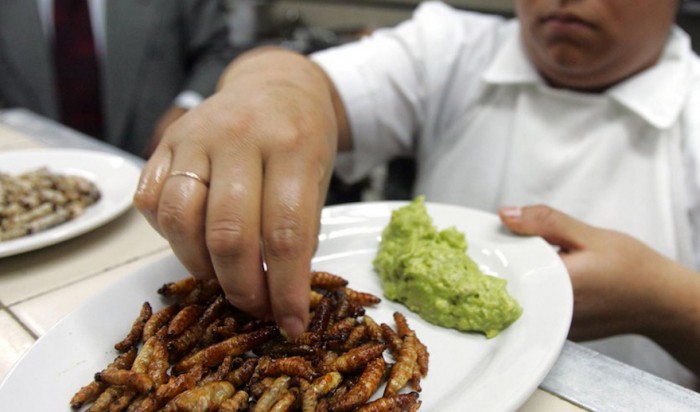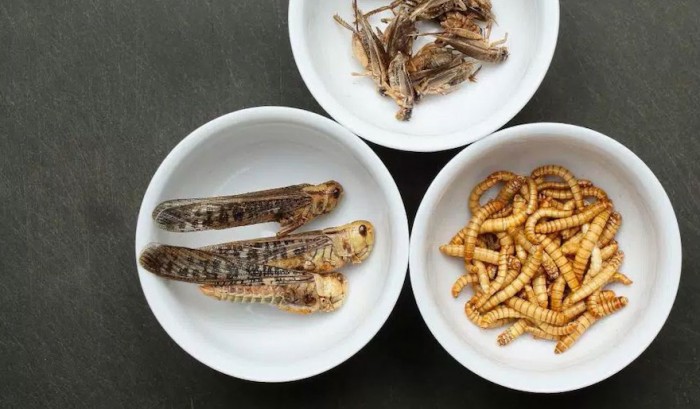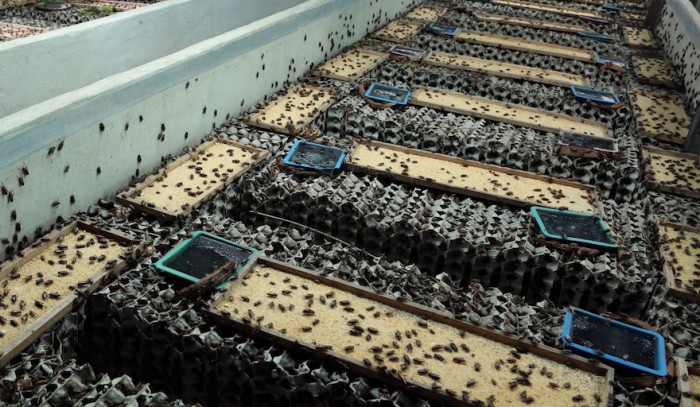Globally, one in nine people are undernourished and the vast majority of these people live in developing countries. Throughout developing nations, the burden of disease and death caused by malnutrition continues to be a major public health problem. In response to this global problem, international non-profit organisation InnoAid aims to co-create sustainable cricket farming solutions to reduce undernourishment and malnutrition in developing countries.
Their concept project launched in Cambodia, a nation in which crickets are a popular delicacy, but the potential to farm them had not yet been considered. Traditionally, during the cricket season, Cambodian locals spend nights in fields with their cricket catching nets scooping crickets which they then sell in markets across the land.
Through a partnership with marginalised Cambodian communities, InnoAid helps locals realise the potential commercial value in cricket farming and works together with them to develop technological advances in insect harvesting for mass production. The Food and Agriculture Organization of the United States (FAO) also supports the mass production and commercialisation of insects as a way of meeting the developing world’s nutrition demands. According to the FAO insects are a healthy and nutritious alternative to food staples such as chicken, pork or beef and if bred on a large enough scale, food security in many famine-hit nations could be achieved.
InnoAid developed a locally adapted handbook containing all the materials needed to carry out the sustainable cricket farming project. This handbook serves as a guide detailing exactly how cricket farming can be done successfully.
While many westerners may struggle with the idea of introducing insects to their diet or think of it as something rare and exotic insects could be an attractive food source for developing nations. According to InnoAid research, the production of large insect batches would be quick since insects have a short life cycle compared to traditional farming animals. Insects, which also don’t require large quantities of water, produce fewer greenhouse gases making insect farming more sustainable and environmentally friendly. New research on cricket farming conducted by Veterinarians Without Borders (VWT) shows the various advantages insect farming has over conventional livestock production. VWT researcher Thomas Weigel says “it’s a low-tech, low capital investment option which requires little time and is easy to learn”
To ensure the successful implementation of an insect farming solution, InnoAid organisers state that “it is crucial that participants understand the value of both farming and eating insects” because that motivates participants to invest time and resources in maintaining the cricket farm before the insects are ready for harvesting.
In rural areas where malnutrition rates are stubbornly high and many cannot afford to buy food, sustainable farming solutions may be worth exploring. The project was done in collaboration with six engineering students on the Design & Innovation Master’s programme at the Technical University of Denmark.









